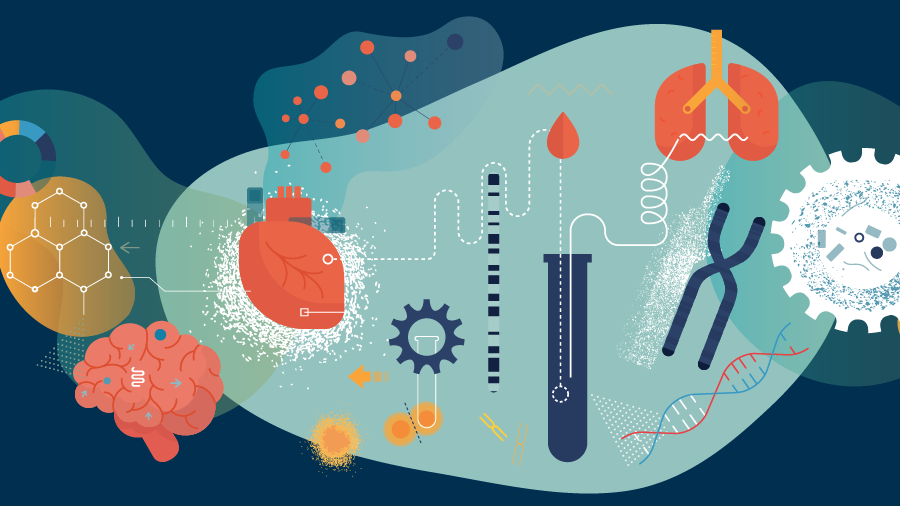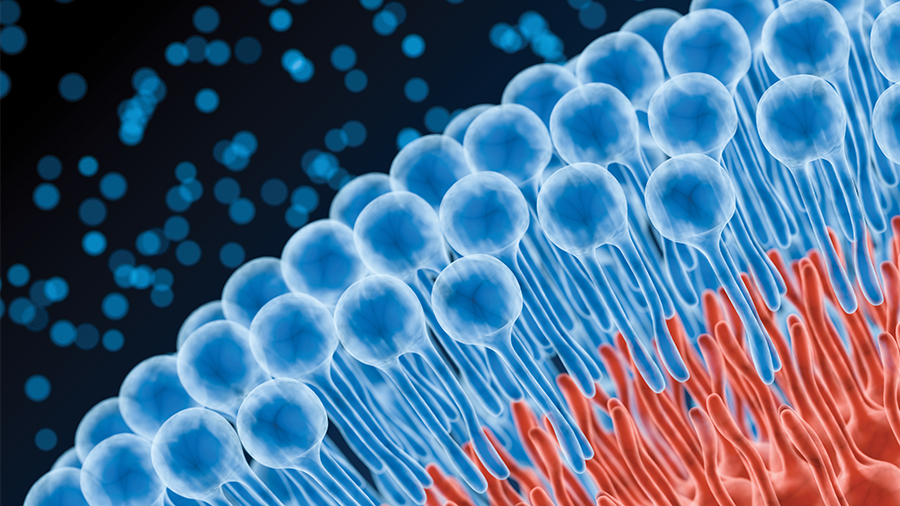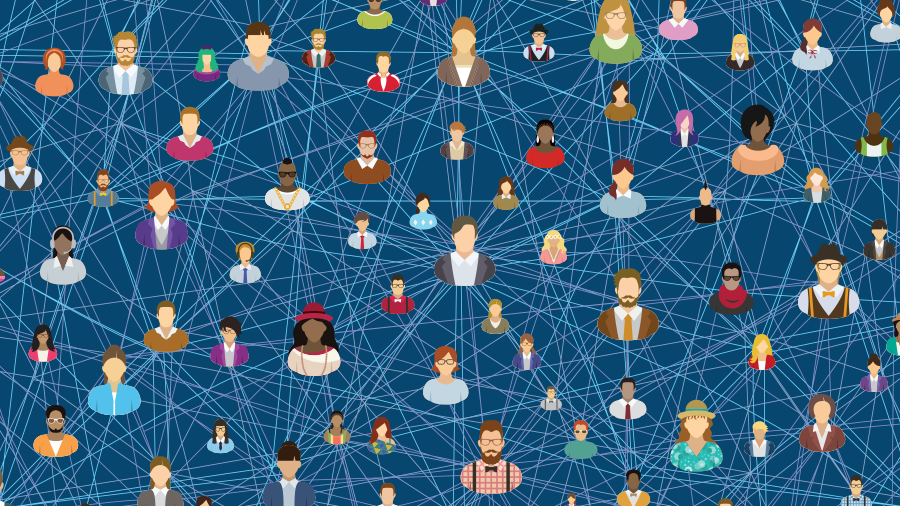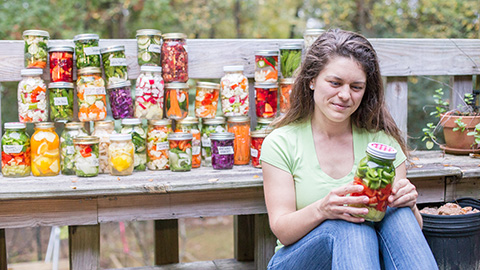Calendar of events, awards and opportunities
Every week, we update this list with new meetings, awards, scholarships and events to help you get your ducks in a row. If you’d like us to feature something that you’re offering to the bioscience community, email us with the subject line “For calendar.” ASBMB members’ offerings take priority, and we do not promote products/services. Learn how to advertise in ASBMB Today.
It's #BlackInSciCommWeek
Black In Science Communication has a ton of events planned for this week. Below are highlights, but please visit the website for more events.
Oct.5: Workshop: So, You’re Interested In SciComm
Oct. 6: Workshop: Inclusivity, accessibility, and representation in science communication
Oct. 6: Panel: Tips for Experience Science Communicators
Oct. 7: Panel: Communicating Science on Digital Platforms
Oct. 8: Panel: Science Writing
Oct. 9: Panel: Science Beyond Social Media
See this tweet for a list of hashtags to use this week.
Oct. 5: Deadline for microbiology award
The National Academy of Sciences is accepting nominations for the Selman A. Waksman Award, which recognizes significant contributions to the field of microbiology and carries a $20,000 purse. Learn about the nomination process.
Sphingolipids in physiology and pathology
Christopher Clarke (Stony Brook Medicine), Giovanni D’Angelo (EPFL) and Liana C. Silva (Universidade de Lisboa) have organized a webinar series focused on sphingolipids, with support from LIPID MAPS and Avanti Polar Lipids. See the full list of webinars and register here. All are scheduled for 11 a.m. Eastern. You can view past webinars here.
Oct. 5: "Homeostatic and pathogenic roles of GM3 ganglioside" by Jin-ichi Inokuchi at Tohoku Medical and Pharmaceutical University
Oct. 19:Talk by Ilya Levental at The University of Texas Health Science Center at Houston
Oct. 19: Talk by Aurélien Roux at the University of Geneva
Oct. 6: ASBMB advocacy town hall

The ASBMB public affairs team's final fall public forum is this week. Please consider attending this listening session and sharing your perspective.
Oct. 6 | 2–3 p.m. EDT — The pandemic's impact on non–COVID research: Non–COVID-19 research has taken a back seat during the pandemic as scientists scramble to better understand the Sars-CoV-2 virus and develop therapies and vaccines. But it remains important for the scientific community to strongly advocate for sustained investment into non–COVID-19 research. Share your experiences and perspectives to help inform our policy solutions to sustain non–COVID-19 research.
Oct. 7: Deadline for DOE community college internship
The U.S. Department of Energy's Community College Internship Program places participants at labs at one of 16 agency locations to help kick-start their technical careers. There are three terms: summer, spring and fall. The agency is accepting applications for the spring term through Oct. 7. This is a paid internship. Learn more.
ASBMB Lipid Research Division Seminar Series

The ASBMB Lipid Research Division features the work of young investigators at noon Eastern on Wednesdays. If you are interested in presenting, please contact John Burke. Register once to access the whole series.
Oct. 7 — Signaling to lipids in flies and worms
- Innate immune signaling in Drosophila shifts anabolic lipid metabolism from triglyceride storage to phospholipid synthesis in an ER stress-dependent manner
Brittany Alexandra Martinez, University of Virginia - Olfactory specificity regulates lipid metabolism through neuroendocrine signaling in Caenorhabditis elegans
Sena Mutlu, Baylor College of Medicine
Oct. 14 — Lipids in viral infection: part 2
- A global lipid map defines a network essential for Zika virus replication
Fikadu Tafesse, Oregon Health & Science University - β-coronaviruses use lysosomal organelles for cellular egress
Nihal Altan Bonnet, NIH/NHLBI
Women in STEM series
The ASBMB student chapter at Texas Weslayan University is running a series of webinars during September and October featuring women in STEM careers. The lineup is as follows. RSVP to get the webinar links emailed to you.
Oct. 13: Terri Kane, associate professor of nurse anesthesia and program director at Texas Wesleyan University
Oct 20: Viola Denninger, lead application scientist (clinical) at Fluidic Analytics
Oct. 14: NIGMS Director’s Early Career Investigator Lecture
Michael D. L. Johnson of the University of Arizona will give this annual lecture at 1 p.m. Eastern on Oct. 14. His talk is titled "Microbes, Metals, Music, and Lessons in Disproving Your Hypothesis." Learn more and register.
Oct. 15: Deadline for Women in STEM2D award
Johnson & Johnson is seeking applicants for its 2021 Women in STEM2D Scholars Award for assistant or associate academic professors. According to a press release, "For three years, each recipient will receive mentorship from leaders at Johnson & Johnson and a total $150,000 ($50,000 each year)." The deadline to apply is Oct. 15. Learn more.

Call for virtual scientific event proposals
The ASBMB provides members with a virtual platform to share scientific research and accomplishments and to discuss emerging topics and technologies with the BMB community.
The ASBMB will manage the technical aspects, market the event to tens of thousands of contacts and present the digital event live to a remote audience. Additional tools such as polling, Q&A, breakout rooms and post event Twitter chats may be used to facilitate maximum engagement.
Seminars are typically one to two hours long. A workshop or conference might be longer and even span several days.
Prospective organizers may submit proposals at any time. Decisions are usually made within four to six weeks.
Nov. 1: Register for ABRCMS virtual meeting
The Annual Biomedical Research Conference for Minority Students will be held virtually Nov. 9–13. Though organizers are no longer accepting abstracts for presentations, you can still register to attend through Nov. 1. See the schedule. See the plenary speaker lineup. As usual, the ASBMB will be an exhibitor at the meeting. We hope you'll stop by our virtual booth!
Dec. 1: Grants for grad students with disabilities
The Foundation for Science and Disability gives out $1,000 grants to disabled fourth-year undergraduates who've been accepted by a graduate program and to students already enrolled in graduate programs. The Science Student Grant Fund is meant to support work on a project or thesis. You can use the grant, for example, to gain access to assistive devices or otherwise facilitate your work. Learn more.
Enjoy reading ASBMB Today?
Become a member to receive the print edition four times a year and the digital edition monthly.
Learn moreFeatured jobs
from the ASBMB career center
Get the latest from ASBMB Today
Enter your email address, and we’ll send you a weekly email with recent articles, interviews and more.
Latest in Careers
Careers highlights or most popular articles

Cooking up science engagement, a fermentation experiment
By blending hands-on cooking with scientific experimentation, a study from a team at North Carolina State University demonstrates how culinary creation can spark scientific discovery and deepen public engagement with researchers.

Upcoming opportunities
ASBMB's PROLAB award helps graduate students and postdoctoral fellows spend up to six months in U.S. or Canadian labs.

From humble beginnings to unlocking lysosomal secrets
Monther Abu–Remaileh will receive the ASBMB’s 2026 Walter A. Shaw Young Investigator Award in Lipid Research at the ASBMB Annual Meeting, March 7-10 in Washington, D.C.

Chemistry meets biology to thwart parasites
Margaret Phillips will receive the Alice and C. C. Wang Award in Molecular Parasitology at the ASBMB Annual Meeting, March 7-10 in Washington, D.C.

Decoding how bacteria flip host’s molecular switches
Kim Orth will receive the Earl and Thressa Stadtman Distinguished Scientists Award at the ASBMB Annual Meeting, March 7–10, just outside of Washington, D.C.

Defining JNKs: Targets for drug discovery
Roger Davis will receive the Bert and Natalie Vallee Award in Biomedical Science at the ASBMB Annual Meeting, March 7–10, just outside of Washington, D.C.
